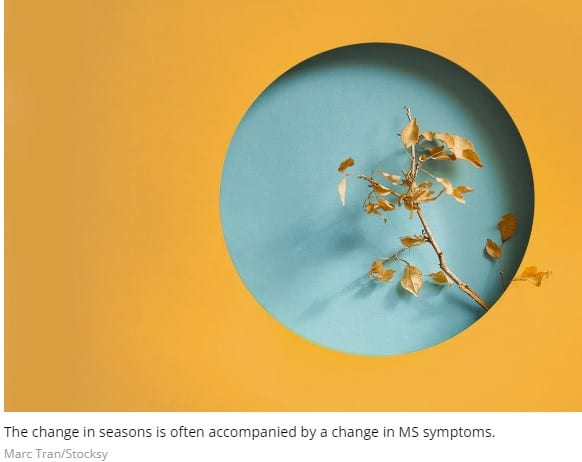
Do you experience more MS symptoms in some seasons than others? Many of us do, says the blogger Trevis Gleason, and research backs up this phenomenon.
Lughnasadh (pronounced LOO-nuss-uh) is the marking of the Celtic season of harvest — autumn. It begins on August 1 (the month also called Lughnasadh), so we’ve technically been in autumn where I live for a good while now.
But the rest of the Northern Hemisphere will mark celestial autumn with the autumnal equinox on September 23. And just to throw in more confusion, meteorological autumn begins on September 1.
Of course, that’s the Northern Hemisphere. Our readers in the southern half of the globe will experience those as springtime dates.
So what does all of this have to do with multiple sclerosis (MS)?
MS Disease Activity Higher in Spring and Autumn
Well, as the seasons change, many of us with MS may notice a bit more disease activity — both in spring and in autumn. For those who have lived with MS for a while, it can bring a sense of dread as one season folds into the next.
This isn’t just a feeling that things get more active during those seasons. Researchers have found it to be so.
As I begin to prepare for the winter months, I also begin to think about my MS and how I might ready myself for another season of MS. In doing so, I noted a number of studies that confirm what many of us have suspected about seasonal changes and symptoms.
Research Confirms What Many of Us Have Felt
One study, published in February 2023 in International Journal of Molecular Science, states, “The disease is shown to have seasonal exacerbation of clinical symptoms.”
Using metabolic pathways, researchers concluded that “histidine pathways were affected, suggesting their role in relapse of MS in the spring and fall. We also found that spring and fall seasons had a higher number of overlapping metabolites affected in MS. This could be explained by patients having a relapse of symptoms during these two seasons.”
So there’s one study that confirms that seasonal changes are not all in our heads!
Not Every Study Agrees on Which Season Has the Most Relapses
CLICK here to continue reading
“““““““““““““““““““““““““`
Stay informed with MS news and information - Sign-up here
For MS patients, caregivers or clinicians, Care to chat about MS? Join Our online COMMUNITY CHAT



